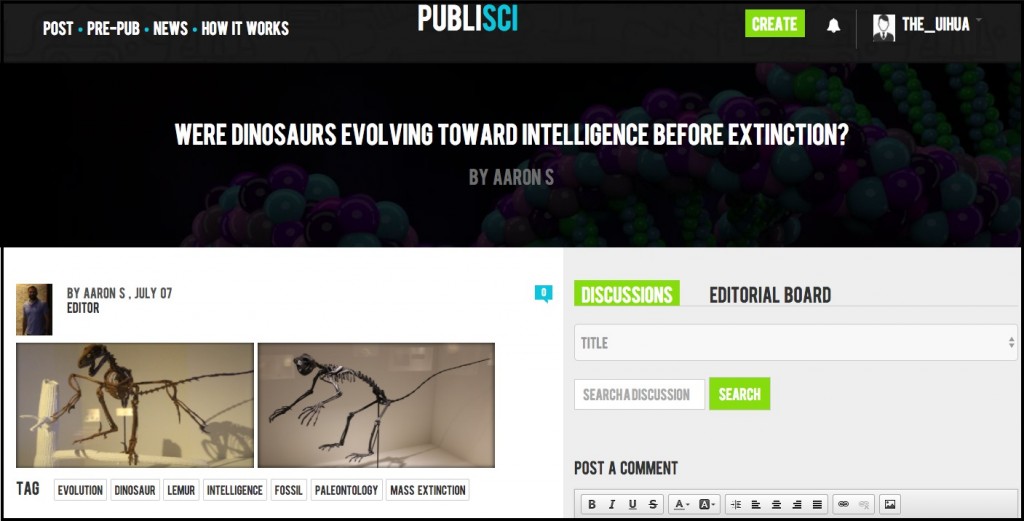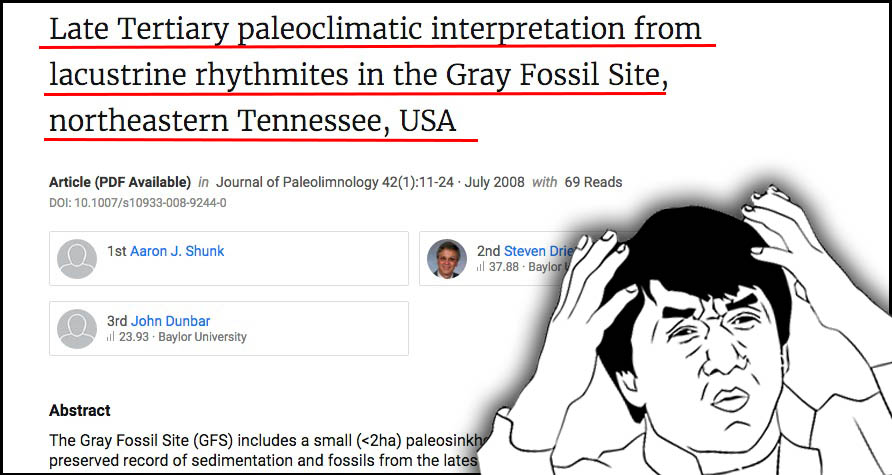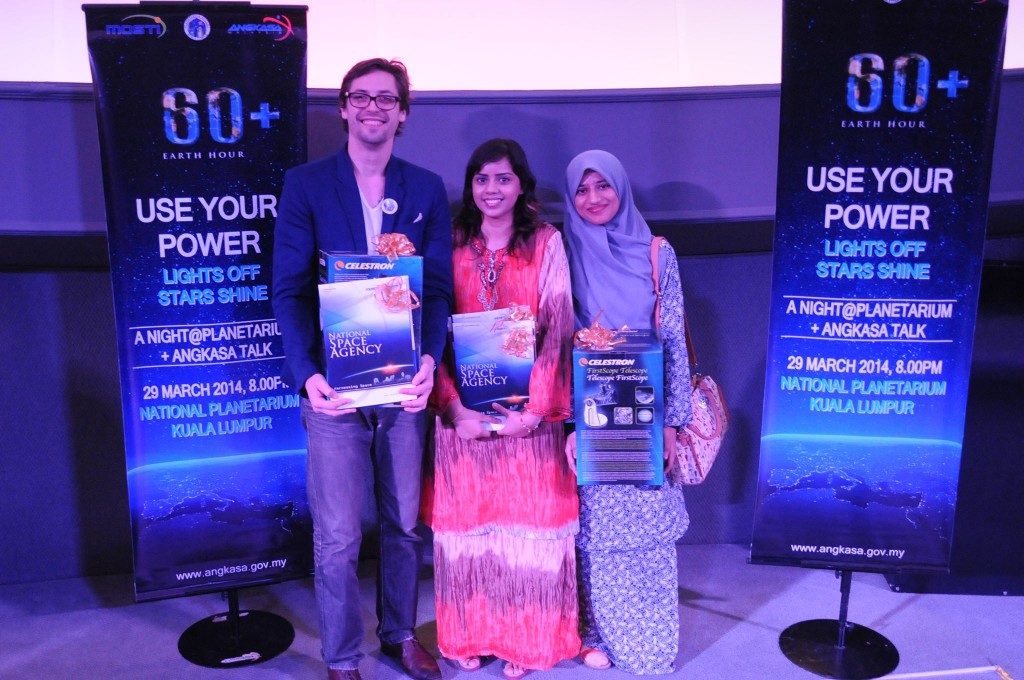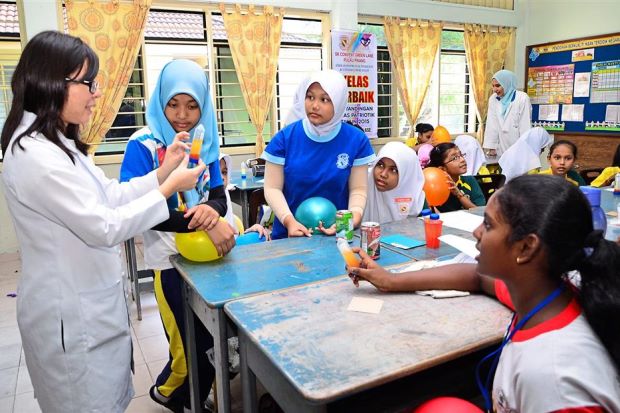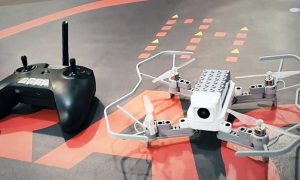This Malaysian crowdfunding site doesn’t want your money, but your… brains? ಠ_ಠ

- 611Shares
- Facebook602
- Twitter1
- WhatsApp8
(PS: The image above is from local comedian extraordinaré Chi Ho. Visit his site here)
By this point, most internet-using Malaysians would be familiar with the whole crowdfunding craze, with established international names such as Kickstarter and Indiegogo alongside local platforms such as Mystartr and Webe Community. However, while most of these platforms involve money – whether to fund new products or charities – the latest addition to the (local) fray doesn’t only NOT want your money, it’s completely FREE! And it’s called PubliSci.
The name comes from the joining of two words, “Public” and “Science”. That’s because Publisci is solely focused on one thing – scientific research papers. BUT WAIT– don’t close this article yet. It’s actually really really cool. We promise!
Because Publisci allows anyone to be a scientist!
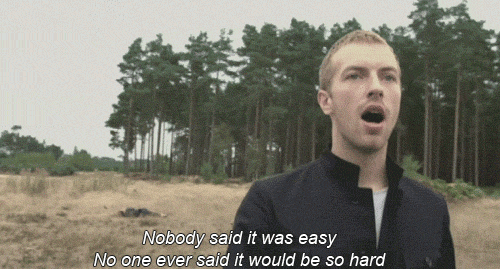
The Scientist. Geddit? Geddit??
If you have an interest in science, one of the most exciting things that can happen is to be published in a scientific journal – basically a collection of legit research papers. However, not everyone has enough expertise to write about it or the equipment to run to run experiments. For example, you could have majored in Marketing and somehow developed an interest in the study of dinosaurs. You may have a theory or idea that you’d wanna look into, but you don’t know anyone in Paleontology or Archeology… so it ends up being shelved somewhere in your brain or a Facebook post.
Publisci was made to bridge that gap by giving a chance for anyone to be a scientist or a researcher – if you have a research idea, all you have to do is pitch it on the site and anyone with the knowledge or interest in the subject can help contribute to your research! So in that same dinosaur example, you can now post your theory and anything else you’ve collected and someone with the expertise can come in, add to it, and, Viola! Research paper!
And of course, this works the other way around too… you can also help other people out with their research and get credited when the paper gets published. The only thing PubliSci can’t do is to publish them in a journal… You’ll still have to submit them to publication journals, but the site will allow you to save it in a handy-dandy printable PDF 🙂
Aside from the science stuff, the site also functions as a social media platform… users can follow each other and up- or down-vote each other based on how helpful their responses are. But even if you aren’t interested in all this researchy stuff, Publisci is also taking science news and rewriting them in a way that’s easy to understand – similar to what CILISOS does, but without the cheap clickbaity titles.
But now that we’ve explained how the site works, let’s get into why it was created in the first place. For this we spoke to the
The founders of this Malaysian site are Malaysian… at heart.
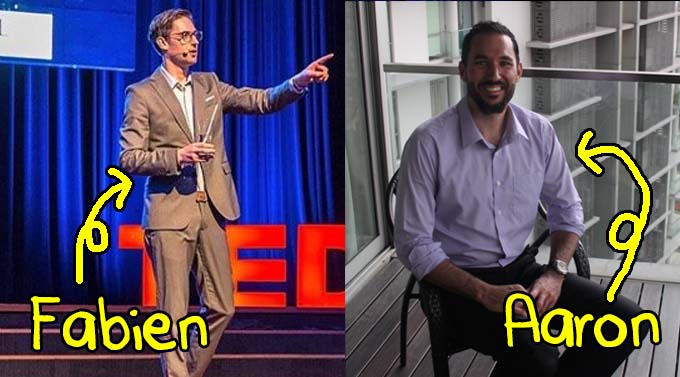
The two main brains behind PubliSci are Fabien Bouhier, a French national who’s been in Malaysia for 4 years; and Dr. Aaron Shunk, an American who’s been here for about three. Dr. Aaron is an expert in the field of Paleoclimatology (whatever that is =_=) while Fabien is an agency relationship manager at Google Malaysia with a hobby in Quantum Physics =_=
Fabien dropped by the CILISOS office for an interview, and he tells us that the idea for PubliSci came about when he met Aaron at a BBQ party in KL last year.
“I checked to see if there was such a platform already out there, and there wasn’t; so I was like “We gotta build this!”. ” – Fabien
Fabien says they dedicated “about 2 or 3 hours a day after work for a year” to the project and kept the development as Malaysian as possible, even making sure they hired Malaysian coders because “this concept was born in Malaysia”.
But now comes the most important question – Why is there a need for such a project, and why base it in Malaysia? Well, Fabien first explains that (as mentioned earlier) the scientific community can often be very closed off if you aren’t a scientist yourself:
“The idea is to break the walls of science. I have no doubt in my mind that the next Einstein or Stephen Hawking lives in a developing country, so we want to create a safe space for them to be heard and share their ideas.” – Fabien
But it was his next statement that made us want to stand up and sing Negaraku with tears streaming down our faces:
“Everyone has the impression that scientific achievements that come out of this region are from Singapore, and no one banks on Malaysia to do the same. But I believe there are great minds to be discovered here.” – Fabien
An example he gave us were Sabrina Mohammad Salim and Zakiah Mohammad Salim, two teenage girls (from a kampung, according to Fabien) whose idea to test the Bernoulli Principle in space was selected to be tested… in space! Yup, two Malaysian entries were selected by the Japan Aerospace Exploration Agency (JAXA) to actually be conducted by an astronaut at the International Space Station. The other selected entry was Fabien’s, 😉 #justsayin’
This project also holds a personal stake for Fabien, who had to give up his dreams of being a scientist in order to find a better life for himself and his family, whom he says was living in the hood in France (Le Hood?) :
“I wanted to make money to get out of the hood, but I was also very interested in science. So I had to choose – be a scientist or make money. Now I want to make it possible for people [interested in science] to not have to choose.” – Fabien.
They really, really, REALLY want more Malaysians to be interested in scientific research!
Although PubliSci is meant to reach out to an international audience, Fabien’s hope is for Malaysians to be the first to jump on board. It’s a good time to show your support too, since the site’s only been up for 4 weeks at the time of writing; and a mobile application still in development.
But more importantly, with news that Malaysian students are performing worse in science than ever before, there needs to be more platforms to encourage and engage us – especially the young ‘uns – in this field. After all, we’ve proven that we’re able to produce great scientists such as Lam Shu Jie who created an antibiotic alternative that may save the human race, and Mazlan Othman, Malaysia’s first Astrophysicist who was former head of the United Nations Office for Outer Space Affairs as examples.
Also Fabien ended our interview with the statement that science is all inclusive, with only one major requirement:
“Science doesn’t discriminate. We don’t care about gender, sexual orientation, race, and all that stuff. As long as there’s a thirst and curiosity for knowledge, you’re a scientist.” – Fabien
We are one image short to meet our article meme quota, so please click on the image below to check out PubliSci (and contribute!) ↓
- 611Shares
- Facebook602
- Twitter1
- WhatsApp8

